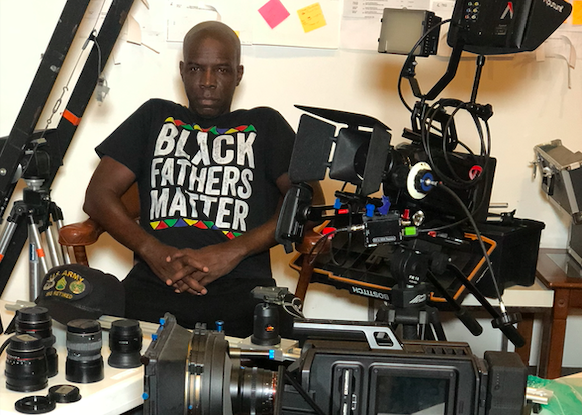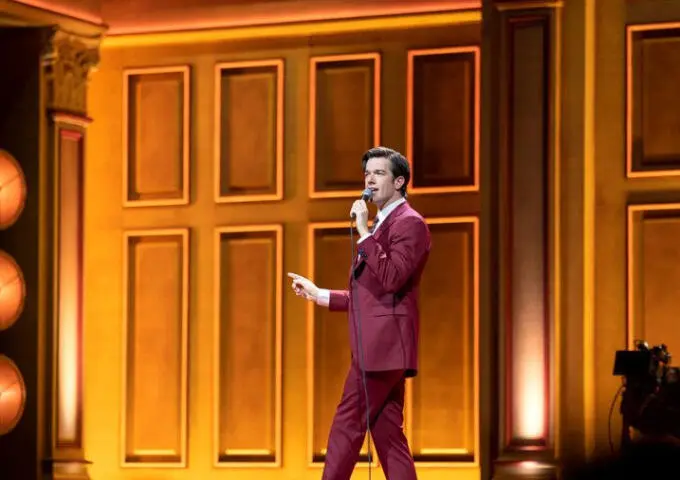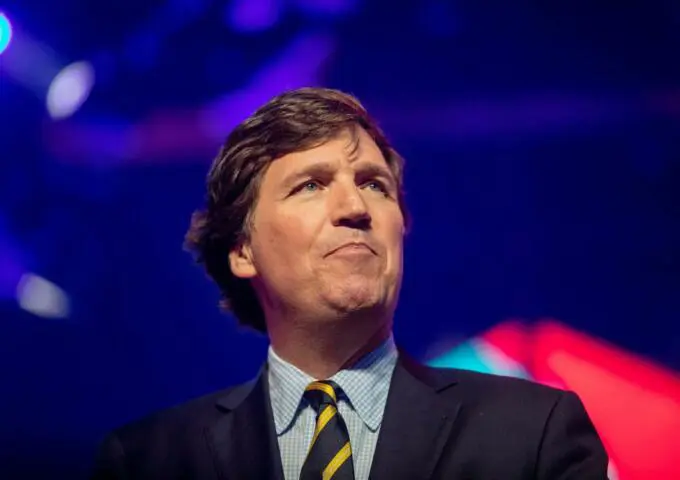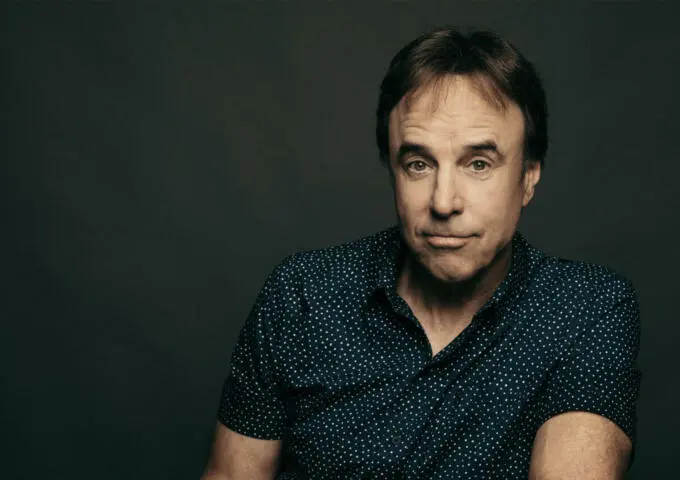Retired drill instructor and filmmaker Jesse James Jackson Jr. and his Jersey Style Films company are producing “The Knights of Graterford,” a movie inspired by Graterford Prison band Power of Attorney.
The band made history in the 1970s as a group of inmates came together to create powerful music. Now Jackson is looking to tell the band’s story on the big screen.
Philadelphia Weekly recently caught up with Jackson to talk about filmmaking and his interest in POA’s story.
Talk a little about how you got involved in film production. What attracted you to the craft.
I worked and lived in New York in the mid-1980s when Studio 54 and Roseland were the hot spots to party. I worked for a group of young white guys who formed a communication company that did “Uplink Broadcasting” for major TV networks and sporting events.
In the early 1990s, I attended the defunct Art Institute of Philadelphia to study in the Audio and Film program. After a few semesters there, I eventually left and found some ads in a film magazine about a film school in England (The London Film Academy) and in Canada (Vancouver Film School). I eventually chose to attend film school in British Columbia, Canada.
“Black Lives even matter when it comes to prison sentence guidelines.”
Director/filmmaker Jesse James Jackson, Jr.
So, to put this all into context from working and living in NYC to going to school in Philadelphia and entering another country to attend an international film school and graduating, I came back to the east coast and formed a film production company with a business partner, Nathan File, a former drill instructor and robotics engineer. We became very well known in Camden when we shot a film called “The Bishop” about a young man coming back from the war and trying to navigate his way through the city after an explosion of a new form of the drug that ravishes the city. We thought it was a home run, but it was one of a few projects that never happened because of something or another.
In the meantime, I worked on many music videos, commercials and other peers’ projects, but all this was just a build up of people we knew we needed later on down the road.
When did you become interested in producing “The Knights of Graterford”? Why did you want to tell the story of Power of Attorney?
The time was 2016, and my music supervisor was Perry Jenkins, who back in the 1980s was part of a musical group known as “Galaxxy,” which was signed to Pop Arts Record Label in Philadelphia. Perry knew one of the members of an obscure band known as Power of Attorney who had passed along to him an old, black, tattered composition notebook. I was on my way to catch a flight to Seattle. I wanted to buy a house and open another film production office on the West Coast. Perry came up to me and asked me to take a read of this notebook and tell me what I thought.
The book tells a story of an obscure group of men behind bars at the notorious Graterford Penitentiary. This band navigated the correctional institutional system to become a funk band and perform outside of their prison and then return afterward. It fascinated me to read how this story weaves and interlaces a narrative of Philadelphia’s music scene juxtaposed against the backdrop of structural racism and incarceration that took place during the turbulent times of the early ‘70s. The story is so thought-provoking and compelling I couldn’t put this notebook down for the whole five-hour flight.
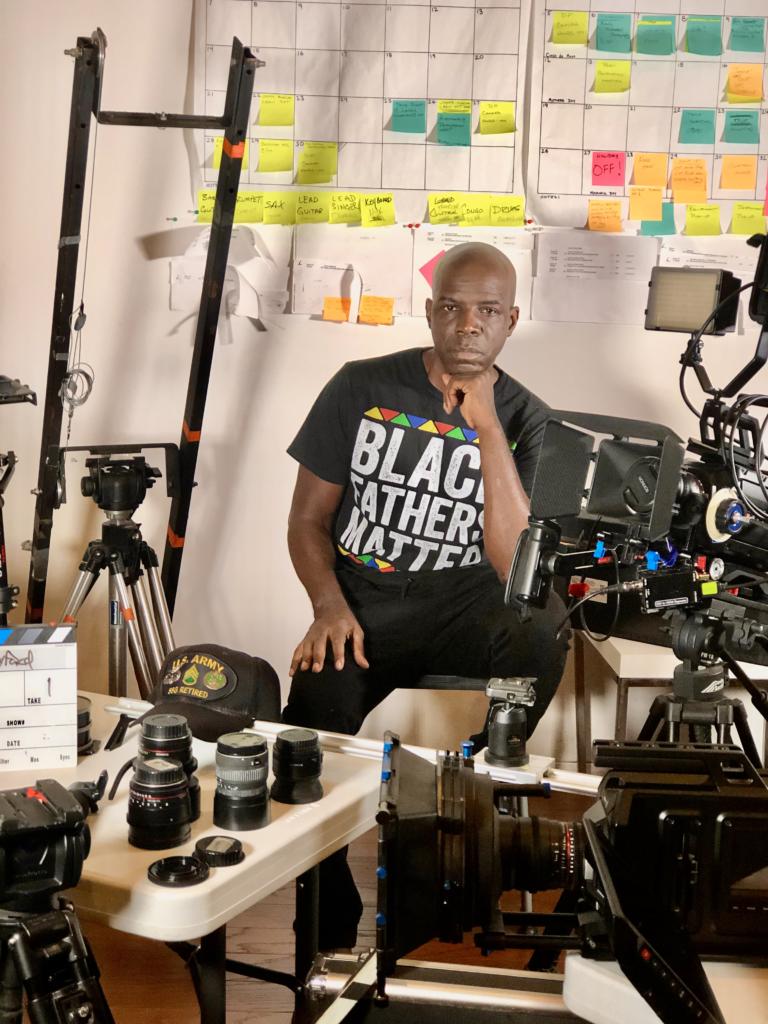
The things that they were allowed to do and how they were used by the penal institution during the time of prison reform … they were the first to be granted and allowed the ability to walk the fine line of freedom and incarceration. There were no other groups or bands coming from a penitentiary that could ever duplicate the accomplishments of Power of Attorney.
I realized at that time this book is gold. I needed to write a screenplay, copyright it and create a motion picture about these events. I call this story “The Knights of Graterford.”
Do you think POA’s story is especially important to tell these days when Black Lives Matter and the issue of racial equality are at the forefront of public discussion? Will the message of the movie speak to some of the social issues we’re all discussing today?
The most intriguing thing for me about this story was their circumstances. These guys could walk out of prison but never had whispered or attempted to escape. After what I’d read, the psychology of those imprisoned convicts who felt they had it better being prisoners who live like rock stars, then being full inmates or even living outside the prison as free men. The things they were allowed to do and how they were used by their correctional institution during the time of prison reform.
This may be more of what the Black Lives Matter movement encompasses: One of the primary goals of the movement for Black Lives is to promote a democracy that is more representative of black communities in America. At the time in the early 1970s in Philadelphia, many of the incarcerated were a direct focus of the Rizzo administration’s brutality to fight against crime and most definitely a crime in the Black communities. As I researched further into writing “The Knights of Graterford,” I found there were many police-involved shootings and beatings that caused riots before and after the civil rights acts of the ‘60s in Philadelphia, which is a direct result of systemic racism in policing policies.
I bet if you had to compare back in the early 1970s the criminal incarceration rate of black men to white men who had been convicted for the same crimes, you’ll find a disparity between their sentences. Even today there would be a difference in sentencing between the two groups when it comes to the same crime. It again proves that there was no equality in the law, Black men were more likely to be given longer prison terms than white men. Black Lives even matter when it comes to prison sentence guidelines.
I think “The Knights of Graterford” is an important case study of incarceration and rehabilitation and how music itself separates this band from the everyday convict. In the last couple of months, I’ve had to do some re-writes to the screenplay to demonstrate how we jump from the present into the past and back to the present to justify how much police cruelty has not changed for each generation, only the cloth that the police officer wears.
Where are you at in terms of making the movie? Is production moving along? Have you run into any challenges?
In 2019, after raising some money, we attempted to shoot part of this film here in Philadelphia, and there have been many ups and downs and missed opportunities. I’ve been commuting back and forth from Seattle to Philadelphia for over three years to get this film produced. My business partner, Wali Hamid, helped to secure a production office on Bainbridge Street in South Philadelphia.
I’ve invested all of my resources in this film project, my time and energy into meetings with potential investors, conference calls with people, who one day say they would love to be a part of this production, then on the next, they disappear. At this stage in my life, I saw it all and it does not bother me that I go through this, it’s a part of the business.
The pandemic and the George Floyd moment caught everyone off guard, and I had to change gears to get this production back into some kind of working order. This is definitely a challenge in this film environment, and it’s hard enough to be Black and a filmmaker in Philadelphia at the same time. I don’t think there is a good enough infrastructure in this city for Black quality production period. It’s a cutthroat industry here and everywhere, but more so for Black filmmakers and their stories.
The strategies we are using now have to deal with music production. The music supervisor, Perry Jenkins, along with producers Bill Jolly, Dave Poe, George McKnight Jr., and Ray Watkins, are in the studio as we speak preparing the soundtrack to “Knights of Graterford.” This soundtrack is a funk-focused, Philadelphia early 1970s driven recording, with a flare and kick of Philadelphia-flavored culture embedded in its arrangements. The first release will be entitled “Here Comes the Knights.”
“I think “The Knights of Graterford” is an important case study of incarceration and rehabilitation and how music itself separates this band from the everyday convict.”
– Director/filmmaker Jesse James Jackson, Jr.
There are many challenges in putting this film together here in Philadelphia. The fact that we don’t have major Hollywood money connections that any white production would have when they come into town. I have to just play the cards that I’m dealt and try and keep this project above water.
What are your hopes for “The Knights of Graterford”? What impact do you see the movie having on not only the film scene but also society?
My hopes are to highlight the long-gone Philadelphia sound that represented soul music that was once universal. Doing a period film about the 1970s Philadelphia renaissance is something that has not been done in this city. “The Knights of Graterford” can be somewhat compared to “The Dirty Dozen” where a team of soldiers is trained and then parachute across enemy lines to assassinate German personnel at a French chateau. The soldiers, recruited from murderers, rapists, and criminals on death row, are promised commuted sentences. In spite of their history, the 12 men prove a spirited and courageous unit.
The comparison is that “The Knights of Graterford” is a group of condemned men who’re serving major prison sentences for their heinous crimes who were chosen for their specialties. These guys would risk their lives for the opportunity to be free, but they could never forget they were convicts. This is a film of how this group of Black men fashioned themselves into this funk band that eventually got a record deal that semi put them on the map.
This is a true Philadelphia story and films with musical themes do well at the box office. Somewhere America has to start to recondition itself to take a chance on something that they would not usually take a chance on. Hollywood productions have a window of opportunity to now look at what real America is all about. We’ve all been conditioned to believe that Tarzan in Africa was the king of the jungle, we always believed that the cowboys where the good guys and the Indians were bad. Black America is America no matter how much white America hates us. There is going to have to be some reconditioning sooner or later to recognize how deep in the structured racism is embedded. Accept the change, ‘cause it’s coming.
